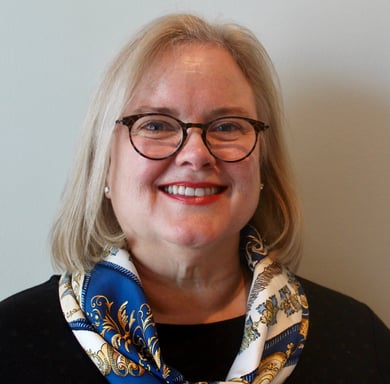As a firm, we strongly support the notion that diverse leadership is critical for organizational success. A discrepancy between the prevalence of women in the pipeline and absence of equal representation in advanced leadership roles, highlights the need for organizations to correct the strategic, structural, and cultural components which impact diversity, inclusion, and equity.
In Honor of Women’s History month, we are proud to feature interviews with TLD Group faculty where we explore their perspectives on female leadership and their experiences coaching female talent.
Interview with TLD Group Executive Coach- Jill Perrin
What female leader inspires you and why?
Sandra Day O’Connor epitomizes key characteristics of resilience. In executive coaching we call this Mental Toughness (keeping focus and determination despite difficulties you encounter) and Productive Perseverance (having a goal and being able to creatively pivot in real time).
How did she build Mental Toughness? She was raised on a rural cattle ranch ~ 9 miles from a paved road, a place that did not have running water or electricity until she was 7 years old. She drew upon skills (learned from living on the humble ranch) of self-reliance, determination, and decision-making to thrive.
How did she channel Productive Perseverance? She applied to Stanford Law school at a time when other law schools did not accept female applicants. She had 40 rejections from law firms that would not grant her an interview on the basis of her sex. What happened? She kept applying and trying; pivoting and re-inventing. She went on to become the 1st woman to serve on the Supreme Court and did so for almost 25 years!
Her leadership development was not linear – instead it was full of obstacles. It took her to destinations she might not have envisioned at the onset. She adjusted several times along the way ~ civilian attorney, stay at home mom, Attorney General for AZ, judge, elected official, author of a Children’s book CHICO, University Professor, Chancellor at the College of William and Mary, Supreme Court Justice.
The adage “it’s better to ask for forgiveness than permission” applies. As a gross overgeneralization, men tend to ask for forgiveness and women to ask for permission. In leadership coaching conversations, I often see overused strengths with men of ‘driving hyper-boldness’, and women ‘inviting hyper-buy in’. Hyper-boldness has the characteristic of risk-taking and speed at the risk of not bringing the organization along. Hyper-buy in has the characteristic of bringing the organization along, but at the risk of losing out on opportunities due to the time drag associated with building extensive buy in.
In executive coaching conversations, we work on capitalizing on these strengths, but dropping the “hyper” piece of the description. When female leaders are able to discern when they have captured the bare minimum of buy-in critical for an effort to succeed, then they need to accelerate. When a female executive ‘over-indexes’ on gaining buy-in, she can start to appear as needing permission from too many stakeholders and thus lose credibility. Gaining buy-in from key stakeholders is critical to success. Gaining buy-in from all can appear to be a ‘need for permission’ to take action. It’s a balancing act, but for leadership development, I encourage women to gain enough stakeholder buy in to have a foundation for action, but then follow the Nike advice “Just do it!”
Sponsorship. Many organizations have developed helpful frameworks and formal programs around mentorship. Many emerging female leaders (EFLs) have taken advantage of these opportunities as well as developed mentors outside of the organizations. EFLs have been coached to develop a personal ‘Board of Directors’ to serve as advisors and sounding boards. Which they have done with great success. However, EFLs need sponsors too – those who will advocate for the EFLs and put their own reputation at stake, those who have power and will use it for the EFLs. As an executive coach, I see EFLs trying hard to identify and forge strong relationships with potential female sponsors. At face value this makes sense. After all, potential female sponsors have navigated these roads successfully. Right? Here is the problem… there are simply not enough potential female sponsors to sponsor all EFLs. (Per the Center for Creative Leadership, women hold just 24% of senior management roles). In 2021, it is a matter of supply and demand. For their personal leadership development, EFLs must seek out male sponsors who will spend their personal capital advocating for the EFLs. How do you as an EFL do this? Be strategic about who could be a potential sponsor, state your goals, believe from your core that you are ready, ask, provide updates, deliver, and gravitate towards roles which have P/L responsibility (as opposed to staff positions).
Increased courage and intentionality grounded in momentum. More women in their 30s, and 40s are gaining (more) access to capital. There remains great upside on this dimension. Emerging female leaders are coming into their own at a time where there are trailblazers ahead of them who are examples of success: Melinda Gates, Kamala Harris, Sonia Sotomayor, Carla Harris. We see increases of women in Executive MBA programs (per CNBC 31% in 2019 vs 25% in 2014); and gender parity is in our line of site at full time MBA programs (per TOPMBA Tuck, Fuqua, Stanford and Harvard achieved nearly equal gender distribution within their class of 2022). I foresee executive coaching discussions with emerging leaders on the topic of “How can I have it all?” evolving from a place of doubt, tough trade-offs and unease in 2021 to a place of expectation and innovative planning as we approach 2031.
Overwhelm is toxic, unnecessary and can be ameliorated. As an executive coach, I work with all Leaders to develop tools to manage overwhelm. This takes on a special urgency with Female Leaders as they tend to take on extended family obligations. What are the tools? Radical prioritization, aggressive delegation, and effective boundary-setting. The interplay of these three skills minimizes overwhelm and allows space for innovation and creativity. These leadership skills can be learned but must be prioritized and maintained.
Stay true to yourself and your values in how you lead. Yes, you may need to tweak your style, but if you lead in a manner that does not truly reflect your personality and values, then you lose credibility fast. You waste the scarce resource of personal energy by taking on a professional persona that is not genuine. ‘Fake it til you make it’ fuels unnecessary stress. Revisit your core values. Identify how you show up and feel when you are operating in congruence with those values. Acknowledge the stress and discomfort associated with not keeping those values front and center when you lead. Successful leadership development requires that you take inventory of your leadership values and the degree to which you are working with them, as opposed to undervaluing them. While you need not take this leadership values inventory often, when you do, you need to dig deep and be honest. Working with an executive coach can give you a framework, process, and accountability partner to identify your essential core values. Then you can continue to build your genuine executive presence as you take on increasing levels of responsibility and visibility.

Jill Perrin
Jill Perrin is a Georgetown trained and ICF accredited Executive Coach who brings unparalleled leadership and talent management experience gained in Fortune 100 companies (GE and American Express) and entrepreneurial businesses (Business Talent Group and Unlocked Leadership). She works with a broad array of Clients ranging from Millennials building their executive presence, to Leaders driving innovation, and Executives expanding their leadership capabilities. She has worked with Female Leaders on topics such as self-advocacy (i.e., no longer waiting to be noticed for exceptional work, instead spotlighting the work and its impact); building a network of sponsors (not simply mentors); holding difficult conversations (context setting and perspective taking). Jill brings real-world Senior Executive experience, compassion and perspective to Client engagements. Her coaching philosophy: “Be an actively engaged partner and guide for you as you identify, explore and step into new activities, perspectives, approaches, habits and behaviors that will bring you increased self-awareness, growth, success and happiness.” She earned her BA, Economics from Stanford University and MBA from Harvard Business School.



